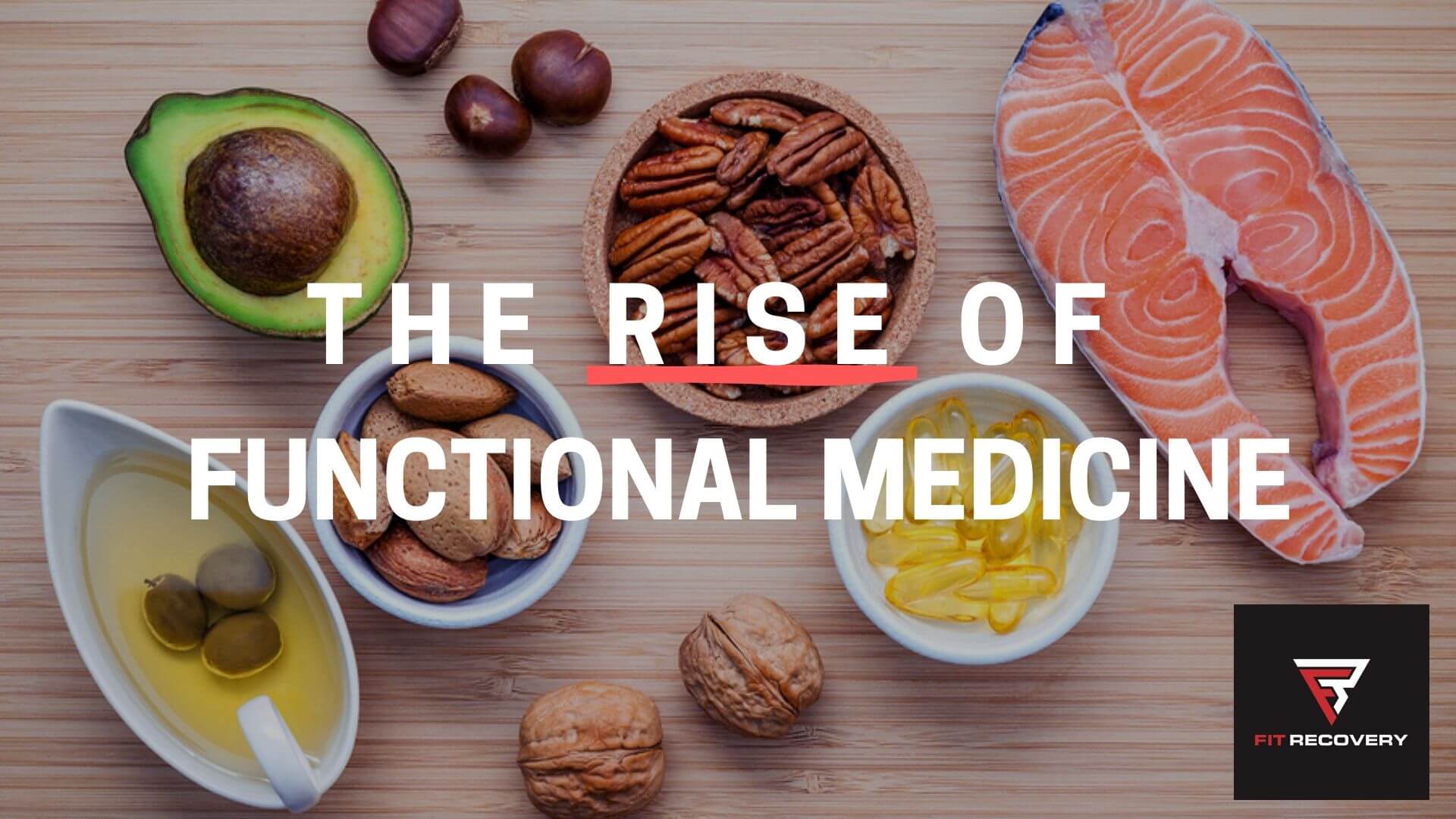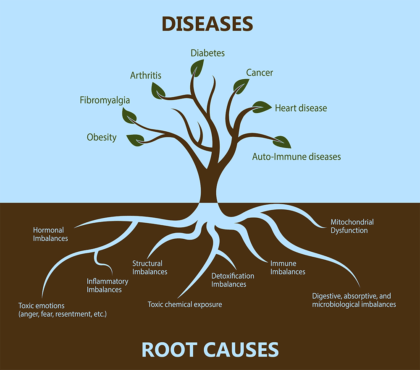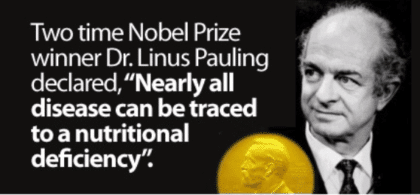Thanks to the explosion of health-focused websites, podcasts and YouTube channels, personalized health optimization now occupies the spotlight.
This is very good news. Healthcare politics aside, a philosophical reboot of the assumptions underlying our healthcare system is long overdue.
Prescription medications taken correctly kill over 100,000 Americans per year. Millions of Americans die each year from preventable diseases like Type 2 diabetes and heart disease. Many people hospitalized with these conditions die from hospital errors, which in total kill about 500,000 people each year – a population the size of Miami.
Hard-working doctors and nurses cannot be blamed. Too many people take prescription drugs in lieu of altering their lifestyles and ultimately end up in the hospital with preventable chronic diseases. To make matters worse, only a minority of doctors have any training in nutrition or chemical dependency.
Fortunately, disease prevention has entered the popular radar. The idea of waiting until we get sick and then heading to the doctor for a pill seems increasingly wrongheaded.
People with conditions ranging from depression, chronic fatigue, intestinal disorders, and skin rashes have found relief by addressing the underlying causes of their malaise instead of suppressing their symptoms indefinitely with pharmaceutical drugs.
We hear stories about people who eliminate gluten or dairy from their diets, resolving three or four seemingly disparate symptoms at once. For people with certain food sensitivities, excising the offending foods may decrease systemic inflammation, alleviating their symptoms as well as reducing their risk for developing chronic disease. Other people might be advised to correct hormonal imbalances or specific nutrient deficiencies.
This philosophy of health is called Functional Medicine. It blends all of the tools of modern medicine with holistic considerations based on emerging research:
Functional Medicine provides a practical clinical framework for how the body’s physiologic systems are linked together and how their functions are influenced by both environment (diet, lifestyle, microbes, allergens, environmental toxins, and stresses) and genetics.” -Mark Hyman, MD, Foreword to Unconventional Medicine, by Chris Kresser
One of the cornerstones of Functional Medicine is the concept of biochemical individuality. In time, we will likely see the development of apps and even Artificial Intelligence systems that synthesize a dizzying array of variables – from genetic factors, to ancestral diet considerations, to local air pollution – to help people optimize their health.
Most importantly, Functional Medicine is helping a new generation of doctors to become re-enchanted with medicine in the first place.
The Health Information Revolution
Hundreds of scientific papers relevant to our health are published every day. A decade ago, it would have been impossible to keep up with this stream of research without consulting a research database and speed-reading all day.
Even then, it would have been difficult to find information detached from the “pill for an ill” approach to health. Pharmaceutical companies fund medical school research, shape physicians’ continuing educations, lobby politicians, and constantly advertise their drugs. They also maintain deep relationships with government agencies like the FDA.
MedLinePlus.gov, the website for The National Library of Medicine, has an odd history of excluding many studies that take a nutritional approach to health. For example, it has been criticized for failing to include in its database many peer-reviewed studies on nutrition by Linus Pauling, the only scientist to win two Nobel Prizes.
With faith in the status quo waning, people have turned to the Internet for fresh information. For any condition you can imagine, you can find multiple websites offering relatable stories and in-depth information. While scrambling eggs in the morning, you can listen to your favorite podcast personality interview pioneers in health research.
Anyone with a smartphone can instantly tune in to segments with epigenetic researchers, longevity scientists, gut health experts, and clinicians specializing in ketogenic diets for mental health disorders.
People with undetected Lyme Disease, hypothyroidism, or chronic pain are often accused of making up their symptoms. Parents of children with ADHD are typically given two options: Adderall or Ritalin. Functional Medicine offers a glimmer of hope for people suffering from chronic health problems.
The Next Domino: Addiction Recovery
I too once struggled for years with a condition that traditional medicine could not fix. Like many other people, I took my health into my own hands.
According to mental health experts, I had a “chronic spiritual disease” called alcoholism. They said that there was no cure. Detox would treat physical symptoms of withdrawal, but after that, the only known treatment was spiritual.
I later learned that this bleak picture was mostly false. People certainly benefit from spiritual transformation after quitting drinking, but this is far from the only tool at their disposal.
Clinicians have experienced success since the 1950s using infusions of basic vitamins, minerals, and amino acids to significantly reduce relapse rates. In 1968, Dr. Linus Pauling himself coined the term Orthomolecular Medicine, which “aims to restore the optimum environment of the body by correcting imbalances or deficiencies based on individual biochemistry.” (source)
Does this approach sound familiar? It should, because anyone who keeps up with health blogs or podcasts will recognize supplementation and biochemical individuality as recurring themes. Supplementation is a tool of Functional Medicine; biochemical individuality is a principle.
Yet when applied to the realm of addiction recovery, these ideas are far from mainstream. Most doctors either throw up their hands or sneer at them. How could this be the case?
A search on Google for “orthomolecular” returns 725,000 results. The same search on National Library of Medicine returns zero results. The Journal Of Orthomolecular Medicine is peer-reviewed and has been published for nearly half a century. It has been rejected numerous times by The National Library of Medicine for technical reasons such as missing paperwork.
Still, rehab centers with success rates averaging 10% have started paying lip service to terms like “holistic recovery.” They seem to be aware of buzzwords without quite understanding the science underlying them. A notable exception is Health Recovery Center in Minnesota, which uses Orthomolecular Medicine and was found in a long-term impact study to boast a 74% average abstinence rate after three years.
Despite my initial skepticism, basic supplements and lifestyle changes saved my life. I now see that my years of heavy drinking caused malnutrition that led to biochemical imbalances in my body and brain. The symptoms of these imbalances included anxiety, depression, insomnia, lethargy, and alcohol cravings that might have persisted forever.
I have not had a drop of alcohol in about 4 years, nor do I have any desire to drink at all. I have been consistently free from the anxiety, depression, and cravings associated with alcohol addiction. Countless readers of this website have experienced similar results. None of this would have been possible without the inspiration and information I gathered from rising pioneers like Rhonda Patrick, Peter Attia, and Chris Kresser.
Having successfully recovered from alcohol addiction, I now want to optimize my body completely. My next step is to make an appointment with a Functional Medicine provider to test for genetic anomalies and environmental toxins.
We are in the midst of the worst drug and alcohol addiction epidemic in our history. Traditional recovery orthodoxy remains in the Dark Ages. I am not advocating for scientific certainty (an oxymoron) or the replacement of one monolithic system with another. The inclusion of nutrient repair and physiological considerations can help people who already benefit from prescription drugs or spiritual support groups.
The rise of Functional Medicine offers us an opportunity to devise a truly multi-dimensional approach to addiction recovery; one that accounts for new research and biochemical individuality in addressing the underlying causes of disorders that were once written off as “mental” problems.
Despite resistance from the powers that be, the overarching trends in science and health are pointing in the right direction. People who pay attention can now find answers that they might have been missing for years.











